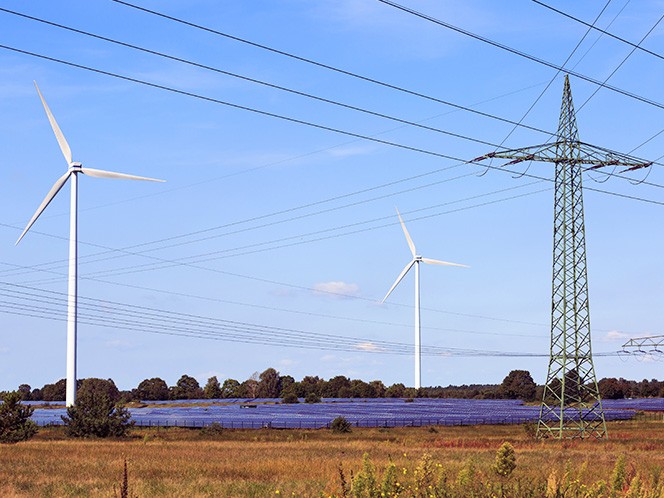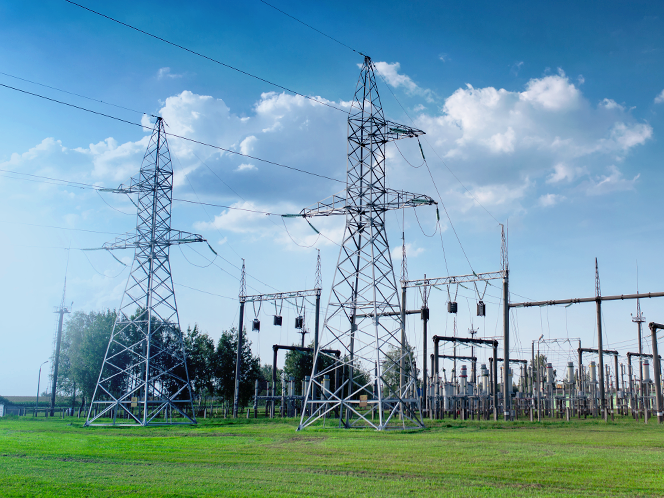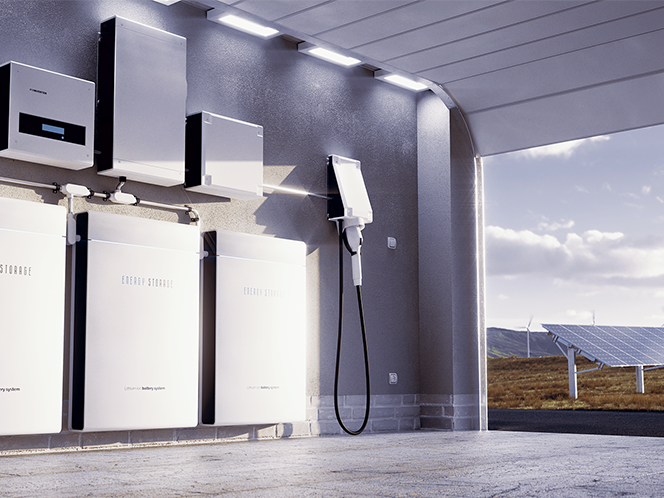The future of the power grid: Navigating decarbonization challenges through technology and innovation
Posted: December 20, 2023

Decarbonizing electricity generation is a monumental goal—it’s hard to overstate how big a transformation it represents and how much work we’ll have to do to get there.
Fortunately, many governments now share a much-needed focus on increasing energy supplies from renewable resources. The US aims to transition the grid to 100% carbon-free electricity by 2035. And the remaining G7 countries have pledged to move to “predominantly decarbonized electricity” by the same date. While this goal-setting is an important step in decarbonization, the power industry still has many practical challenges to solve if we’re going to meet these goals as a society. Renewables can only produce power intermittently, and we need to get better at moving power to the places where renewable energy resources aren’t available. Further challenges arrive alongside the rise of electric vehicles—energy demand is getting increasingly unpredictable.
Our Industrial Life
Get your bi-weekly newsletter sharing fresh perspectives on complicated issues, new technology, and open questions shaping our industrial world.
Harnessing the power of data and technology will begin to solve the issues of predictability and capacity of the grid, but energy companies will also need to answer new questions while implementing this tech. How can we coordinate, collect and exchange data with the right people? How can we ensure that just the right amount of power is put onto the grid at the right time and in the right place? What about upgrading our aging infrastructure to work with modern technology?
In the three-part series “The future of the power grid,” host Rebecca Ahrens at Our Industrial Life talks to industry experts about these challenges and the role that new industrial technologies can play in bringing us to a carbon-free, energy-secure future.
I really think if we can solve the energy problem, we can solve a lot more problems... if you free up the ability of people to see the world as bigger, because they're not focusing on an acute problem, be it energy access or water access or food access, I think it gives people a chance to think bigger, and that makes society better.
Join us as we discuss these issues and more at Our Industrial Life, the podcast that brings you stories from the essential industries and investigates how data and technology are shaping the future of the connected industrial economy.
Episode One: The future of the power grid: Re-engineering for renewables
We talk to three industry experts about practical steps we must take to decarbonize the power grid and how new technology—like smart grids, distributed energy resources (DERs), and advanced industrial software—will help us create a carbon-free, energy-secure future.
Episode Two: The future of the power grid: Aging infrastructure
How do you put more power on an already strained and aging power grid? Our guests say industrial software, and the data analysis it makes possible, is helping make the most of our existing infrastructure. They explain how software will help us increase capacity, carry out predictive maintenance to prevent failures and outages, and help the power grid accommodate sustainable energy sources as we decarbonize.
Episode Three: The future of the power grid: The challenge of DERs
Three industry experts discuss how grid operators are incorporating DERs—like rooftop solar and large batteries—in ways that maintain the integrity of the grid and don’t threaten to upset the delicate balance of energy supply and demand.
We encourage you to take a listen, and if you like what you hear please: Spread the word and refer us to a friend!
Subscribe to Our Industrial Life at Apple Podcasts, Spotify, YouTube, and Google Podcasts.


